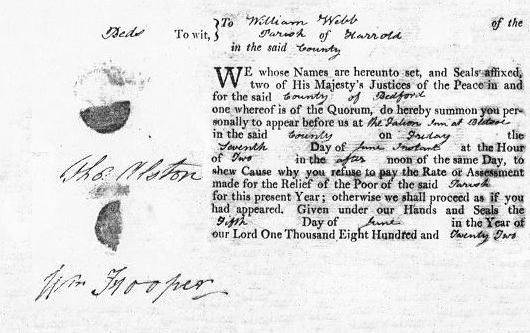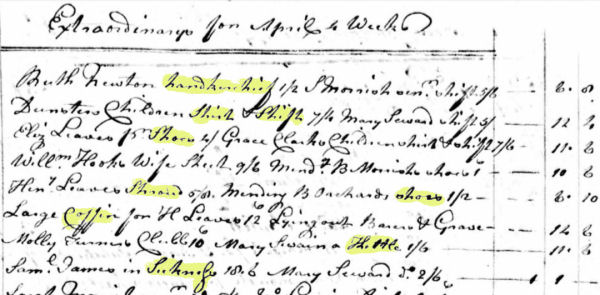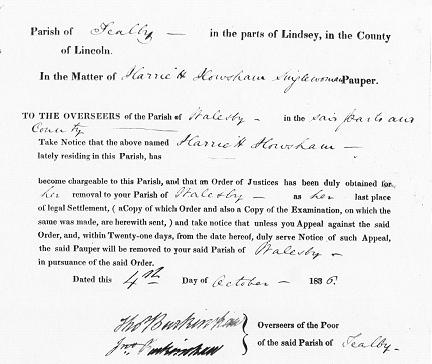Poor Law Parish Records
The workhouse was a major element of Britain's poor relief system which, from the end of the sixteenth century, provided publicly-funded and administered assistance for local residents who could not support themselves. From 1601 until 1834, the poor relief was primarily administered by the parish — the area around a parish church ‐ and its governing committee, the Vestry. From 1662, townships — smaller centres of population within large rural parishes — could be given the same status as parishes for the purpose of administering poor relief.
Annually appointed parish officers, known as Overseers, collected money from householders based on the value of the property. The Overseers also dispensed the money as they saw fit, mostly to individuals in the form of out-relief — hand-outs of cash, bread, clothing, firewood etc. Able-bodied relief claimants were expected to work for their out-relief and some of the money could also be spent on housing the elderly and the chronic sick. The workhouse evolved during the seventeenth century as a way of reducing the cost of providing poor relief and also deterring fraudulent claims by the able-bodied. Out-relief remained the predominant method of providing poor relief, however.
The 1662 Settlement and Removal Act gave parishes the power to remove back to their home parish incomers who were judged liable to become chargeable of the poor rates. For more information on this topic, see the poor laws section of this website.
Parish records relating to the poor laws, poor rates, settlement laws, and workhouses include:
- Parish Overseers' Accounts - list poor rates collected and allowances paid. Related documents include rate demands, receipts, and summonses for refusal to pay.
- Churchwardens' Accounts - details of expenditure on the church and church-owned property.
- Vestry Minutes - general administration of parish matters, sometimes including poorhouses.
- Settlement Records - settlement certificates, settlement examinations, and removal orders.
- Bastardy Documents - claims as to the identity of fathers, records of maintenance payments etc.
- Apprenticeship Records - details of those apprenticed out by a parish.
- Corporate Records - records of Poor Law Incorporations, Gilbert Unions etc.
These records will generally now be deposited in county and metropolitan record offices.
Each parishioner's property and payment would be recorded in the Overseers' accounts books.

Example of an Overseer's poor rates accounts book from Wakefield, 1770.
Failure to pay the poor-rate would result in a court summons.

Example of a poor rate summons from 1822.
The poor rates funded payments to the needy poor in the parish, in cash or to pay for items such as those highlighted in the example below: handkerchief, a shirt, shift, shoes, a coffin, a kettle, or in sickness. Such handouts became known as out-relief.

Example of out-relief payments at Lyme Regis in 1796.
The settlement laws generated a great deal of administrative activity. Labourers wanting to move around had to obtain settlement certificates from their home parish to guarantee it would cover the cost of any poor relief they needed.

Example of a settlement certificate from 1747.
Someone who "became chargeable" to a parish in which they were not settled might have to undergo a settlement examination by a magistrate. Below is an example of an examination from 1829 in the Berkshire parish of Thatcham.
An unsuccessful examination would generally result in the person's forcible removal back to their home parish.

Example of a removal notice from 1836.
Websites holding online parish record collections include:
Unless otherwise indicated, this page () is copyright Peter Higginbotham. Contents may not be reproduced without permission.



